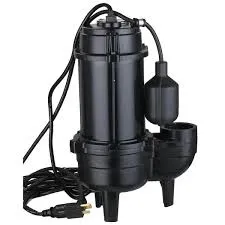Telugu
- Afrikaans
- Albanian
- Amharic
- Arabic
- Armenian
- Azerbaijani
- Basque
- Belarusian
- Bengali
- Bosnian
- Bulgarian
- Catalan
- Cebuano
- Corsican
- Croatian
- Czech
- Danish
- Dutch
- English
- Esperanto
- Estonian
- Finnish
- French
- Frisian
- Galician
- Georgian
- German
- Greek
- Gujarati
- Haitian Creole
- hausa
- hawaiian
- Hebrew
- Hindi
- Miao
- Hungarian
- Icelandic
- igbo
- Indonesian
- irish
- Italian
- Japanese
- Javanese
- Kannada
- kazakh
- Khmer
- Rwandese
- Korean
- Kurdish
- Kyrgyz
- Lao
- Latin
- Latvian
- Lithuanian
- Luxembourgish
- Macedonian
- Malgashi
- Malay
- Malayalam
- Maltese
- Maori
- Marathi
- Mongolian
- Myanmar
- Nepali
- Norwegian
- Norwegian
- Occitan
- Pashto
- Persian
- Polish
- Portuguese
- Punjabi
- Romanian
- Russian
- Samoan
- Scottish Gaelic
- Serbian
- Sesotho
- Shona
- Sindhi
- Sinhala
- Slovak
- Slovenian
- Somali
- Spanish
- Sundanese
- Swahili
- Swedish
- Tagalog
- Tajik
- Tamil
- Tatar
- Telugu
- Thai
- Turkish
- Turkmen
- Ukrainian
- Urdu
- Uighur
- Uzbek
- Vietnamese
- Welsh
- Bantu
- Yiddish
- Yoruba
- Zulu
Telephone: +86 13120555503
Email: frank@cypump.com
డిసెం . 31, 2024 04:47 Back to list
chemical feed pumps for water treatment systems ensuring ...
Chemical Feed Pumps for Water Treatment Systems Ensuring Efficiency and Safety
Water treatment systems play a critical role in maintaining public health by ensuring that drinking water is free from harmful contaminants. One vital component of these systems is the chemical feed pump, which is responsible for delivering precise quantities of chemicals necessary for water purification. This article explores the significance of chemical feed pumps in water treatment and how they contribute to overall efficiency and safety.
Understanding Chemical Feed Pumps
Chemical feed pumps are mechanical devices designed to inject chemicals into water at controlled rates. These chemicals can include disinfectants like chlorine, coagulants such as alum, pH adjusters like sodium hydroxide, and flocculants. The accurate dosing of these chemicals is essential to achieve desired water quality and compliance with regulatory standards.
There are several types of chemical feed pumps, including diaphragm pumps, peristaltic pumps, and gear pumps. Each type has its advantages depending on the specific application, fluid characteristics, and required flow rates. For example, diaphragm pumps are known for their ability to handle corrosive liquids and provide precise flow rates, making them a popular choice in water treatment facilities.
Benefits of Chemical Feed Pumps in Water Treatment
1. Precision and Consistency The primary function of chemical feed pumps is to ensure that the right amount of chemicals is added to the water. This precision is crucial for effective treatment and preventing overdosing or underdosing, both of which can lead to health risks or ineffective purification.
chemical feed pumps for water treatment systems ensuring ...

2. Automated Systems Modern chemical feed pumps often come with automated control systems that allow for real-time monitoring and adjustments. These systems can be integrated with water quality sensors that continuously analyze the water, ensuring that chemical dosing is dynamically adjusted according to the specific needs of the water being treated.
3. Improved Safety By ensuring that the chemicals are introduced in controlled amounts, chemical feed pumps enhance the safety of water treatment processes. Overdosing can lead to harmful chemical residuals, while underdosing may fail to eliminate pathogens. Reliable pumps reduce the risk of human error and contribute to a safer water supply.
4. Cost-Effectiveness Accurate dosing not only safeguards water quality but also minimizes chemical waste. Chemical feed pumps help water treatment facilities optimize their chemical usage, leading to significant cost savings over time. This efficiency is particularly important for municipal treatment plants operating under budget constraints.
5. Versatility Chemical feed pumps can handle a wide range of fluids, including highly viscous or abrasive substances. This versatility allows water treatment facilities to adapt their chemical selection and treatment methods based on specific contaminants without needing extensive modifications to the pumping system.
Conclusion
In conclusion, chemical feed pumps are essential components of water treatment systems, directly impacting the quality of drinking water and public health. Their precision, safety, and versatility make them indispensable in the effective management of water treatment processes. As technology advances, the integration of smart systems into chemical feed pumps is likely to enhance their functionality further, paving the way for even more efficient and safe water treatment solutions. By investing in reliable chemical feed pump technology, water treatment facilities can ensure that they meet regulatory standards while delivering safe and clean water to their communities.
-
High-Efficiency Submersible Effluent Pump for Sewage & Wastewater Solutions
NewsJul.08,2025
-
High Quality CH Warman Slurry Pump Factory - Leading Horizontal Slurry Pump Supplier
NewsJul.08,2025
-
Hot Sale Chemical Circulating Pump – Efficient & Durable Slurry Circulating Pump Solutions
NewsJul.08,2025
-
High-Efficiency Submersible Dredge Pump for Sand & Gravel Durable Dredge Slurry Pumps Solutions
NewsJul.07,2025
-
Wholesale Slurry Pump Impeller Supplier – High-Quality & Efficient Pump Parts for Enhanced Performance
NewsJul.07,2025
-
High-Efficiency Water Submersible Pumps Reliable Water Pump for Potable Water Supply
NewsJul.06,2025










